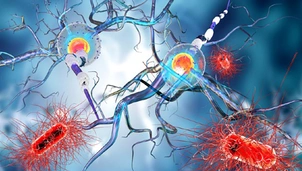Essential tremor
Also known as: familial tremor, unintentional shaking
At The London Clinic we offer advanced diagnosis and treatment for essential tremors. Book an appointment with one of our leading neurologists and start your treatment journey today.
What is essential tremor?
Essential tremor is a nervous system disorder where different parts of your body involuntarily shake.
An essential tremor usually affects the upper part of the body, most commonly the hands and arms, but also the head, tongue and voice box.
As people get older they can develop a natural tremor as their muscles and bones become slightly weaker.
A natural tremor is different from essential tremor, which is more noticeable, and can prevent you from doing everyday activities like writing or getting dressed.
Around 6% of the population will develop essential tremor at some point during their lifetime. It can first develop in infancy, though is more likely to develop much later in life and becomes more common as you get older.
What causes essential tremor?
We don’t fully understand why essential tremor develops but genetics plays a part. Almost 50% of people with essential tremor also have a family member that has it.
This means that children with parents or grandparents who develop essential tremor are more likely to develop it themselves.
Though essential tremor is more likely to develop later in life, it’s not a natural part of the ageing process.
Scientists believe that people with essential tremor have some kind of nervous system dysfunction, particularly in the way the thalamus (a part of the brain that helps coordinate movement) operates.
There is a slight increase in risk of developing other neurological conditions such as Parkinson’s disease, Alzheimer’s disease and migraine if you have essential tremor.
How is essential tremor diagnosed?
At The London Clinic one of our neurologists or movement disorder specialists will diagnose you for essential tremor by looking at your signs and symptoms, understanding your medical history and giving you a neurological clinical examination.
There’s no specific test or blood test for essential tremor diagnosis.
There are other conditions that can cause tremors that your specialist may want to rule out. These include:
- Alcohol withdrawal
- Alzheimer's disease
- Hyperthyroidism
- Multiple sclerosis
- Migraine
- Parkinson’s disease
- Poisoning (mercury)
- Stroke
- Traumatic brain injury
What are the different types of essential tremor?
There are two main types of essential tremor: kinetic and postural.
Kinetic essential tremor affects you when you’re moving, for example walking, blinking or moving your wrists.
Postural essential tremor affects you when you’re not moving, for instance when you hold your arms outstretched or you’re standing stationary in a queue.
Which parts of the body does essential tremor affect?
Essential tremor affects different areas of the body including:
Hands and arms
Which shake in small, rapid movements more than five times per second.
Head
About a third of people who have essential tremor have symptoms that affect their head movement with repetitive nodding or an obvious side to side headshake.
Voice box
If you have an essential tremor that affects your voice box it can make your voice tremble and cause you to be self-conscious.
Tongue and palate
If the essential tremor affects your tongue and palate, it can be difficult to speak and form words properly.
What makes an essential tremor worse?
Essential tremor might be more noticeable on some days than others. Several physical and emotional factors can make an essential tremor worse including:
- Stress
- Strong emotion
- Low energy
- Tiredness
- Stimulants, such as coffee, smoking or drinking alcohol
- Hot or cold weather
- Essential tremor can get worse over time but not always. Some people have a mild essential tremor that stays the same throughout their lifetime
For others it may get worse, starting as an intermittent (on-off) tremor in one hand which eventually becomes consistent and spreads to both hands and arms.
It can affect some people’s whole body to the point it can interfere with everyday tasks such as dressing, washing and eating.
Some people have their quality of life impacted by their tremor, which can lead to a low mood that affects their mental health.
How is an essential tremor treated at The London Clinic?
Mild essential tremor may not need any treatment at all as you are able to live a normal life without complications.
If your tremor is interfering with normal activities your specialist is likely to prescribe you an oral medication which can help lessen your symptoms.
At The London Clinic we help many people improve their essential tremor with specific medication such as:
- Anticonvulsants (gabapentin, primidone)
- Beta blocker medication (propranolol)
- Anti-anxiety medication to calm the nervous system (alprazolam and clonazepam)
- Botox injections to manage vocal and head tremors more easily
- Lifestyle changes and improving your diet can help manage essential tremor.
At The London Clinic we offer the following therapies that many of our patients find helpful:
- Yoga
- Swimming
- Reflexology
- Hydrotherapy
- Aromatherapy
- Massage therapy
- Acupuncture
Some people find their essential tremor improves when they stop smoking or drink less coffee.


